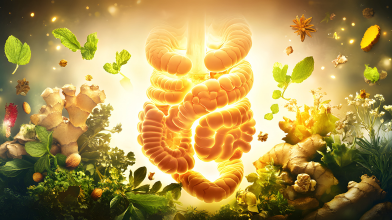
BEAUTY WELLNESS
How a Healthy Gut and Mental Health contribute to Skin Health
Written By Kristofor Parker
Today, we are very aware and informed about our outer beauty and choosing invasive treatments to change our physical appearance, but what about our inner health? Can inner health affect our appearance on the outside? Let’s look at how our gut is affecting our skin and mood.
Your gut is part of a larger system call the digestive system. Your digestive system contains physical and chemical breakdown of foods which are processed by the digestive organs into nutrient molecules. They are absorbed from the intestines and circulated throughout the body via the blood stream. Foods that can’t be digested are turned into waste and eliminated from the body.
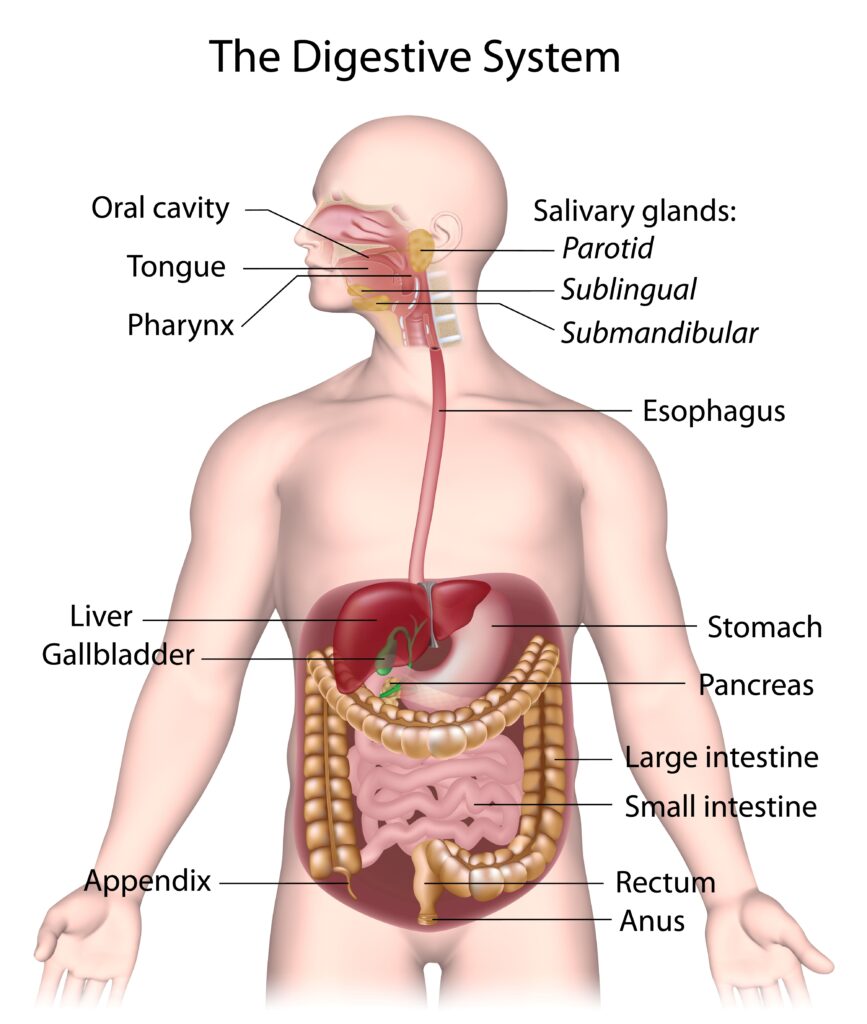
The digestive system begins at your mouth. Chewing food is the 1st step in the digestive process. Chewed food is turned into bolus when mixed with saliva. The bolus is then moved from the pharynx into the esophagus through automatic reflexes and into the stomach. Once in the stomach, food is mixed with gastric juices to form a thick creamy substance called chyme. Chyme helps breakdown food into smaller more absorbable pieces. It is then passed into the small intestine which breaks down through a chemical process by enzymes. Chyme becomes chyle, which then allows the nutrients from food to be absorbed via special lymphatic vessels into the blood stream. Finally, the large intestine processes waste, dead cells and bacteria into feces and excretes it from the body through the anus.
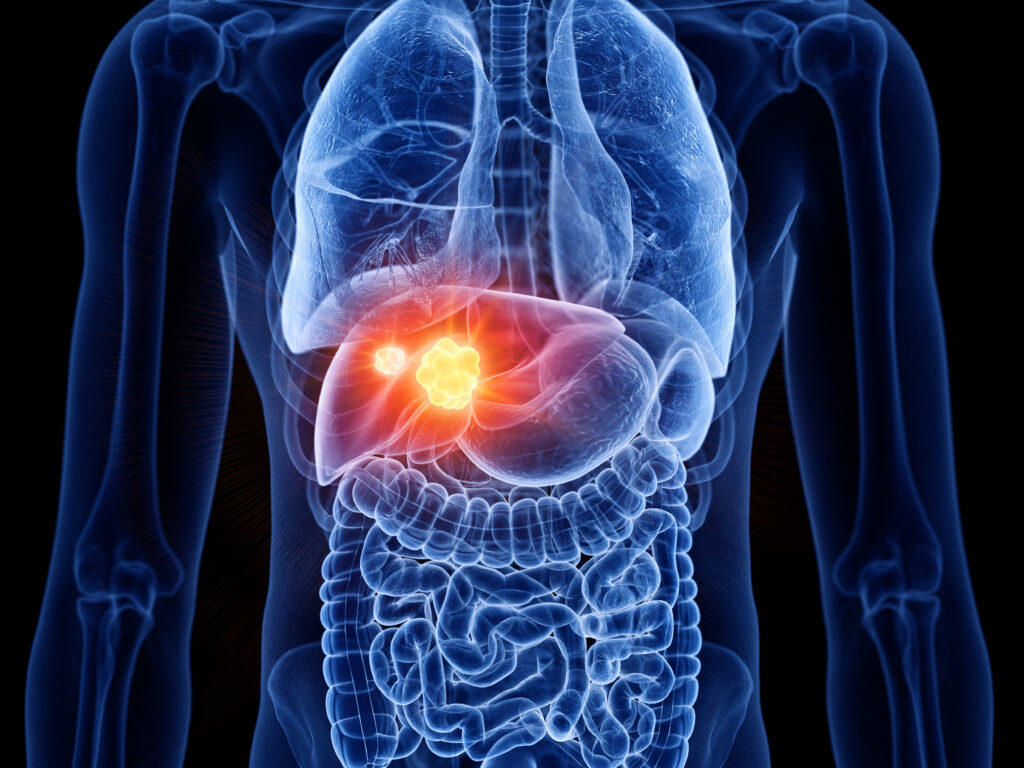
Your liver is one of the most important organs in your body. Your liver filters blood and breaks down harmful substances. It produces bile that helps to break down fats, processes glucose and stores vitamins and minerals. Detoxified blood then returns to the heart and lungs.
Gut / Skin Connection.
Your skin mirrors your body, concerns with skin such as acne, eczema, psoriasis, dry skin and rosacea are conditions scientifically proven to be caused by poor gut health and function.
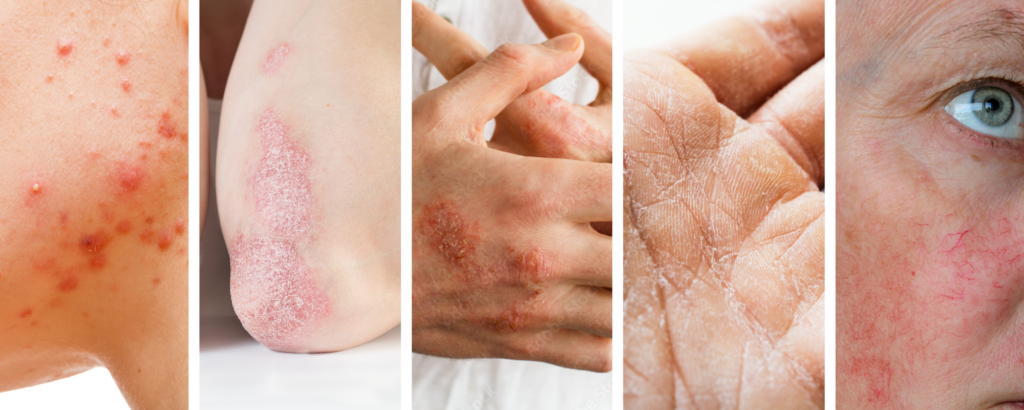
Maintaining a healthy gut has been scientifically found to improve skin health, immune function, mood and energy levels. Signs of a healthy gut can include regular bowl movement patterns, no bloating or gas feelings and clear, hydrated healthy skin. Your hair, nails and skin are the 1st places to see changes because nutrition is in short supply.
Your first line of defense of having a healthy gut which produces healthy skin is DIET!
Getting all your nutrients through diet to include a variety of fresh fruits and vegetables. Other foods can include beans, nuts and seeds, fish and avocado. On the other hand, a diet high in sugars and processed foods, favor less helpful microorganisms that disrupt your microbiome. “You are what you eat!” Chewing your food into smaller, easier absorbable bites allows enzymes and acids to further breakdown food into nutrients. Food that sits in your gut will ferment causing bloating and gas which is not a normal process and the body’s way of telling you that something is off, or it does not like what you ingested. Working with a nutritionist or naturopath can help get digestive enzymes working properly which leads to healthier skin.
One way they may help you is with probiotics. Probiotics contain helpful microbes that you can ingest, through supplements or fermented foods. Your gut microbiome contains bacteria as well as viruses, fungi and parasites, it’s an ecosystem all on its own inside your gut. Bacteria in your gut helps break down certain complex carbohydrates and dietary fibers that you can’t break down on your own. The microbes produce short-chain fatty acids and they also provide the enzymes necessary to synthesize certain vitamins, including B1, B9, B12 and K. Gut bacteria also help to metabolize bile in your intestines. Your liver sends bile to your small intestine to help you digest fats. If this process stopped functioning properly, you wouldn’t be able to recycle bile acids and your liver wouldn’t be able to produce new bile, which it needs to digest and absorb fats. Left over cholesterol would build up in your blood.
HOW GUT HEALTH AFFECTS YOUR MOOD
As we’ve discussed, proper function of your diet and gut affects the outside of the body, i.e. skin health, but what about your mood and mental health?
There is a correlation between gut health and mental health. Scientists have studied “the brain in your gut” hidden in the walls of the digestive system. The (ENS) Enteric Nervous system is composed of millions of nerve cells lining the gastrointestinal tract. Its main role is controlling digestion and communicating information back to our brain. The ENS may trigger emotional shifts in people coping with IBS (irritable bowel syndrome) and bowel problems such as bloating and gas. Research is finding evidence that irritation in the gastrointestinal system may send signals to the Central Nervous System that trigger mood changes. These new findings may explain why a higher percentage of people that are now dealing with bowel problems develop anxiety and depression.
So, what can you do?
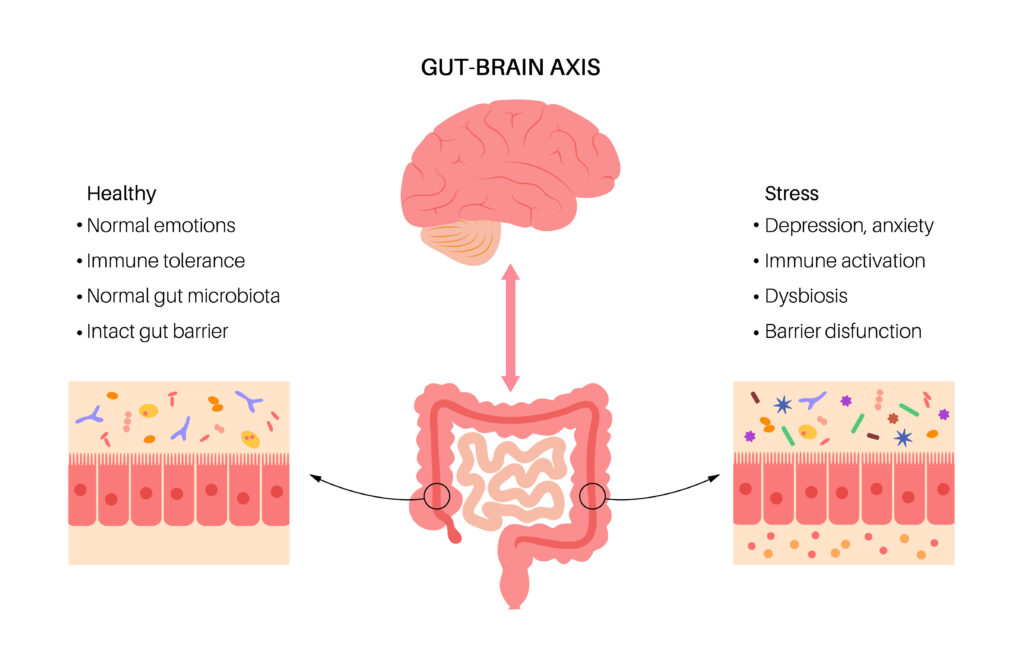
- Liver Cleanses: cleanses are proven to rebalance the body’s systems to rid it of harmful bacteria so the system is working properly.
- Supplementation: with the help of a nutritionist or naturopath; liver support, immune support and probiotics are ways that can help support a healthy system.
- Eating a balanced diet abundant in fruits and vegetables
- Exercise: physical activity has been proved for centuries to improving not only physical changes but mental wellbeing. Exercising releases endorphins, the “feel good chemicals” that improve mental alertness, energy and mood. Research has shown lifting weights only a few times a week increases muscle growth and bone density and HIIT (high intensity interval training) only 15 minutes a day not only increases the ability of the heart to function properly but keeps burning fat throughout the day. “if you don’t use it, you lose it”
- Manage stress levels: taking time for yourself helps balance moods and energy. Take walks, baths, inhalation of specific essential oils; anything that you can take some “me time”
